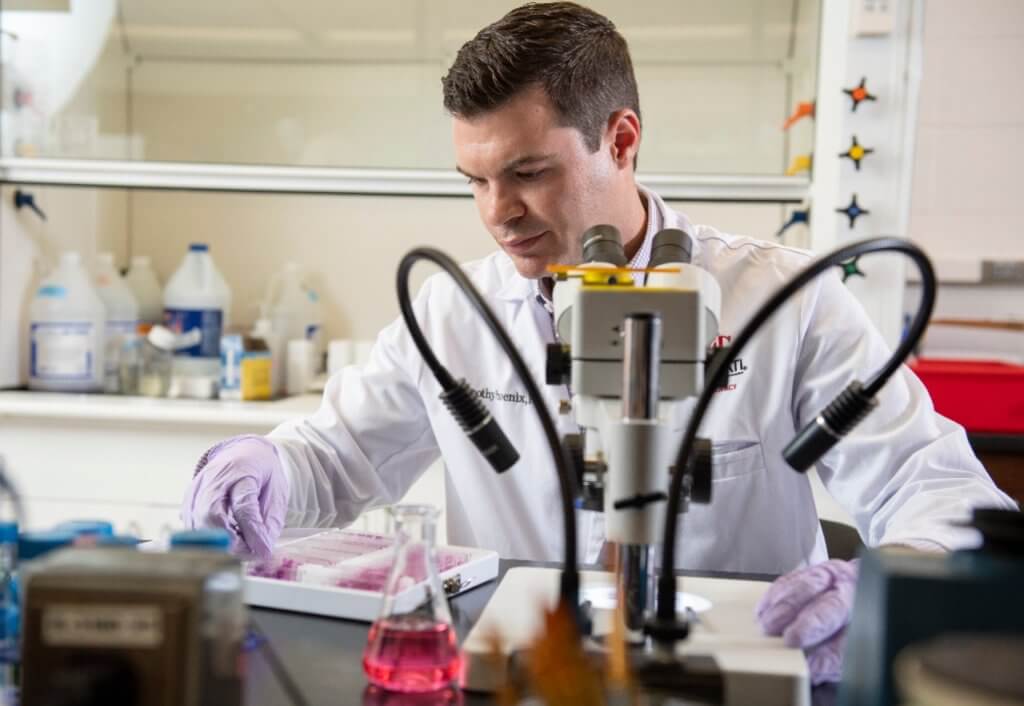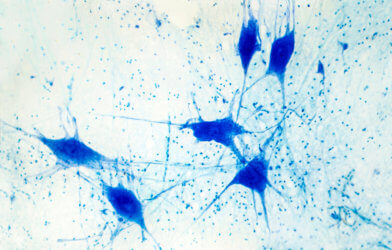An assistant professor at the University of Cincinnati, Timothy Phoenix, PhD, is currently spearheading three separate research projects investigating the genetic mechanisms of certain pediatric brain tumors. Phoenix, whose research primarily focuses on diffuse midline gliomas, is funded by a series of grants from the National Institutes of Health (NIH), the ChadTough Defeat DIPG Foundation, and the Prayers from Maria Foundation.
Each of the three grants aims to uncover the underlying mechanisms of pediatric gliomas, or brain tumors, though each grant focuses on a different area of genetic research.
Diffuse midline gliomas, previously known as diffuse intrinsic pontine gliomas (DIPG), are pediatric tumors that affect the central nervous system. They originate in either the brain or spinal cord, often developing at the brain stem.
About 200-300 children are diagnosed with this type of tumor each year in the United States, which are considered inoperable given their precarious location in the body. The only current treatment, radiation, is considered ineffective, leading to a very low survival rate.
“Most patients die within a year or two after being diagnosed. So it’s truly a devastating disease,” says Dr. Phoenix in a statement.
The NIH grant research is focused on the way certain genes affect local blood vessels in the brain when those genes are activated by a tumor. Since some tumor cells are capable of manipulating blood vessels in the brain into creating a protective blood-brain barrier, which can shield the tumor from treatment, researchers focused on the particular gene involved in this process.
“So what we’re interested in understanding is: how do tumors regulate this gene, and then really understanding what it is doing to the blood vessels in these tumors. If we get rid of the gene in our tumor models, does that cause a change in the blood-brain barrier within the tumor or does it change how the tumor grows?” says Dr. Phoenix.
The ChadTough grant research focuses on a different gene, MYC, that can spur tumor growth when activated. While there has been substantial research into MYC regarding adult tumors, less is known about the role MYC plays in pediatric gliomas.
Researchers hope to learn more about what activates the MYC gene in the first place, and how MYC helps a tumor grow, which could lead to new interventions aimed specifically at the gene.
Meanwhile, the Prayers from Maria grant research focuses on another known genetic mutation that is commonly found in pediatric gliomas. Using new tumor models, researchers are testing a drug that could target this mutation, which is present in about 10-20% of diagnosed pediatric gliomas, according to Dr. Phoenix. If successful, the tested drug could also be used in treating other cancers where this genetic mutation is found, such as leukemia and endometrial carcinoma.
While the specific focus of each research grant varies slightly, the end goal for each of the studies led by Dr. Phoenix remains the same: to learn more about the genetic mechanisms behind pediatric gliomas, potentially leading to new treatment options for those diagnosed children.
Article written by Adam Swierk












